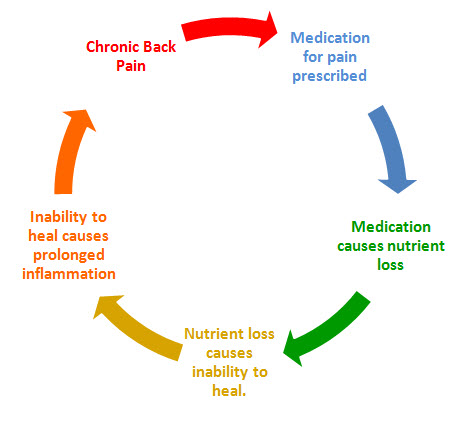Vitamin A
Vitamin A was the first fat soluble vitamin to be identified. As
opposed to be being one distinct biomolecule, vitamin A is
actually composed of a family of substances known as
retinoids. Retinol (alcohol form), retinal (aldehyde form), and
carotenoids (previtamin A). There are several carotenoids (a-
carotene, cryptoxanthin, lutein, & lycopene), but the one with
the most vitamin A activity is beta carotene.
Signs & Symptoms of Deficiency:
Poor immune function
Loss of night vision
Reduced white blood cell counts
Infertility
Poor growth
Skin lesions (eczema)
Acne
Fatigue
Vitamin A has been shown to be beneficial in the following
conditions:
Gastric ulcers
Hypothyroid
Congestive heart failure
Cystic Fibrosis
Gout
Measles
Hepatitis
Upper respiratory infections
Urinary tract infections
Diabetes
Arthritis
Dermatitis
Psoriasis
Atherosclerosis
The common cold
Allergies
Drugs, medications, or additives that may deplete or interfere
with Vitamin A metabolism:
Alcohol
Corticosteroids and other medications that interfere with
zinc absorption (see zinc)
Neomycin
Olestra (a food additive found in many fat free products)
Mineral oil (when taken consistently in higher doses)
Cholestyramine
Colesevelam (Welchol)
Colestipol
Laboratory testing for Vitamin A:
HPLC (high performance liquid chromatography) – serum
blood draw
Leukocyte functional assays (Spectracell labs)
Food Sources:
Liver, cod liver oil, yellow and green leafy vegetables, eggs,
and dairy products
Vitamin A was the first fat soluble vitamin to be identified. As opposed to be being one distinct biomolecule, vitamin A is actually composed of a family of substances known as retinoids. Retinol (alcohol form), retinal (aldehyde form), and carotenoids (previtamin A). There are several carotenoids (a-carotene, cryptoxanthin, lutein, & lycopene), but the one with the most vitamin A activity is beta carotene.
Signs & Symptoms of Deficiency:
Poor immune function
Loss of night vision
Reduced white blood cell counts
Infertility
Poor growth
Skin lesions (eczema)
Acne
Fatigue
Vitamin A has been shown to be beneficial in the following conditions:
Gastric ulcers
Hypothyroid
Congestive heart failure
Cystic Fibrosis
Gout
Measles
Hepatitis
Upper respiratory infections
Urinary tract infections
Diabetes
Arthritis
Dermatitis
Psoriasis
Atherosclerosis
The common cold
Allergies
Drugs, medications, or additives that may deplete or interfere with Vitamin A metabolism:
Alcohol
Corticosteroids and other medications that interfere with
zinc absorption (see zinc)
Neomycin
Olestra (a food additive found in many fat free products)
Mineral oil (when taken consistently in higher doses)
Cholestyramine
Colesevelam (Welchol)
Colestipol
Laboratory testing for Vitamin A:
HPLC (high performance liquid chromatography) – serum blood draw
Leukocyte functional assays (Spectracell labs)
Food Sources:
Liver, cod liver oil, yellow and green leafy vegetables, eggs,and dairy products
















